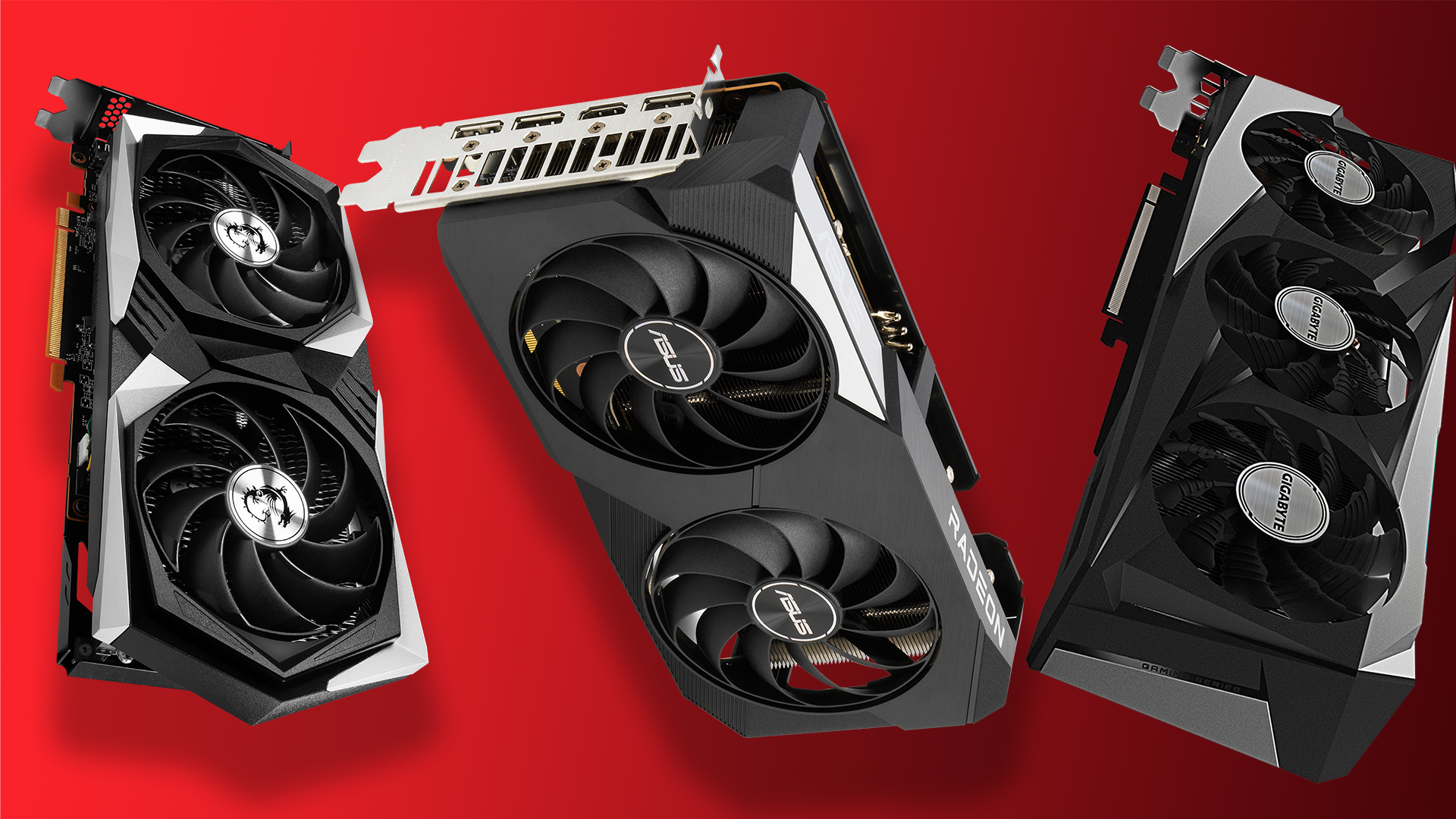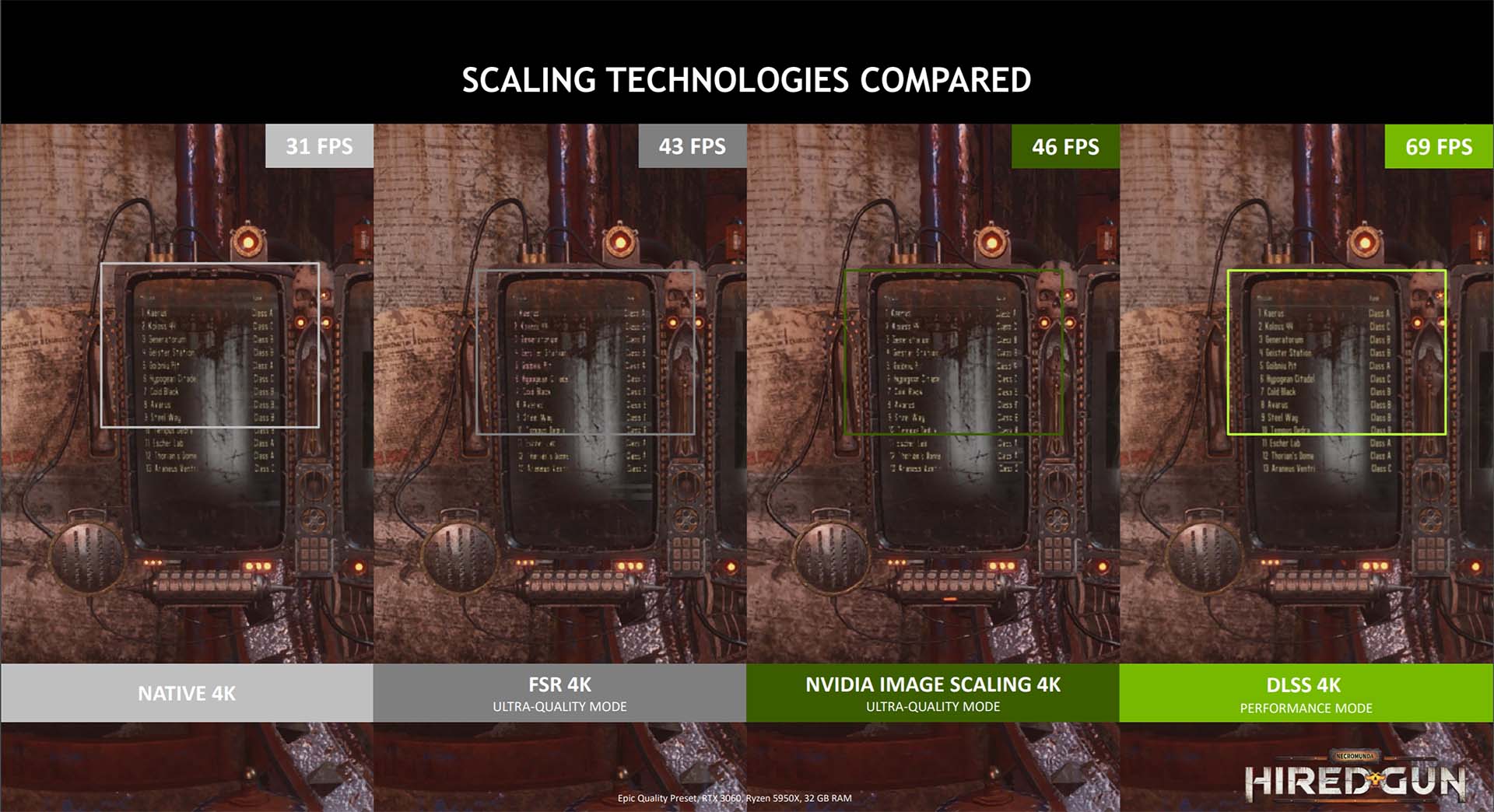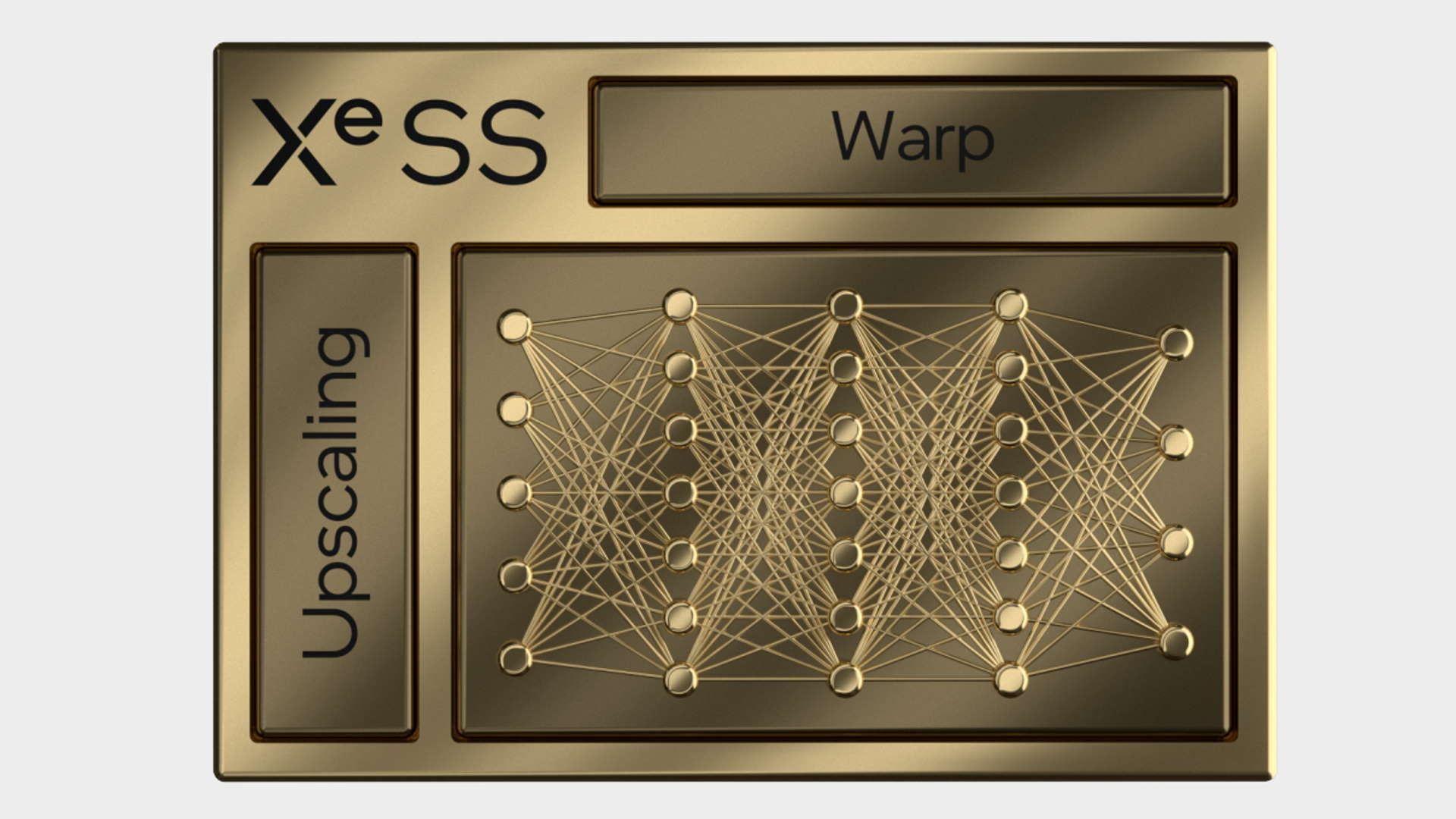Nvidia and AMD are in an upscaling arms race and this is just the beginning
FSR, RSR, DLSS, NIS, XeSS, TSR... and we're only just getting started.

When you think about PC performance, you think about graphics cards. These components are the tractor pulling the plough of performance through fields of pixels, to use an awkwardly specific analogy, and that's not changing anytime soon. Though there's a case to be made for upscaling technologies as another means of turbocharging your PC, and we're only just getting started there.

Over at CES 2022, we saw AMD and Nvidia go toe-to-toe in mobile graphics and budget GPUs, but what's new there? These two are always at each other's throats for PC graphics dominance. What stood out to me, however, was how AMD built up Radeon Super Resolution (RSR), its offshoot of FidelityFX Super Resolution (FSR) that works on near-enough every game ever made, and made it a much bigger part of its show than you might expect.
RSR is a more generalised approach to upscaling that AMD says will work on "nearly every game you own." It's driver-side, meaning you'll need an AMD graphics card to use it, but it's as simple as switching it on in the drivers to enable it. It's not out yet for us to put it to the test, but it's coming really soon with the brand new Adrenalin package, so we'll see how it fares then. I would suspect it's not going to be as effective as the per-game optimised and implemented FSR, but it's best to see it running in action before we make our minds up.
Yet I believe a large part of why this was such a talking point for AMD at CES 2022 is because of the increased competition. Nvidia has Deep Learning Super Sampling (DLSS), so AMD has FSR. Nvidia rereleases its driver-side Nvidia Image Scaling late last year, and makes quite a big fuss about that, don't you know, and AMD reacts with RSR. Nvidia even released a tool especially for comparing upscaling technologies called ICAT.
There may be plenty of crossover there with timelines of development and what have you, but the competitive nature of these companies to lead the way is going to be a huge boon to us, PC gamers.

Upscaling's impact isn't going to diminish, it's only going to play an increasingly important role in PC performance from here. And if I think that, the boffins at Nvidia and AMD HQs are certain to be three steps ahead with something even better than what we have now. As Nvidia has proven, AI is a real dab hand at this sort of thing, and its development is coming on leaps and bounds by the calendar month.

And this arms race for upscaling supremacy is only going to be made even more competitive by Intel's entry into the space. Death Stranding's Director's Cut was announced for PC this week, and we already know that it will use Intel's upcoming XeSS upscaling technology. And there are sure to be more games on the way that make the most of that yet to be released technology.
Keep up to date with the most important stories and the best deals, as picked by the PC Gamer team.
Then there's Unreal Engine 5 with Temporal Super Resolution, and Microsoft's own take on it, and probably many more options out there all competing to take your low-res frames and make them look like they're actually 1440p, or 4K, or even 8K. It's an industry-wide effort, and clearly there's a desire for every technologically-minded company to stay abreast with the pack and offer an upscaling solution.
DLSS was most definitely the eureka moment for AI-powered upscaling tech in gaming, but through 2022 we're expecting to see many more new and improved formulas try and do what it can but better. I'd argue that upscaling technologies already have as much impact on PC performance as some component upgrades do, but in the next half decade we could see it do so much more.

Jacob earned his first byline writing for his own tech blog. From there, he graduated to professionally breaking things as hardware writer at PCGamesN, and would go on to run the team as hardware editor. He joined PC Gamer's top staff as senior hardware editor before becoming managing editor of the hardware team, and you'll now find him reporting on the latest developments in the technology and gaming industries and testing the newest PC components.

